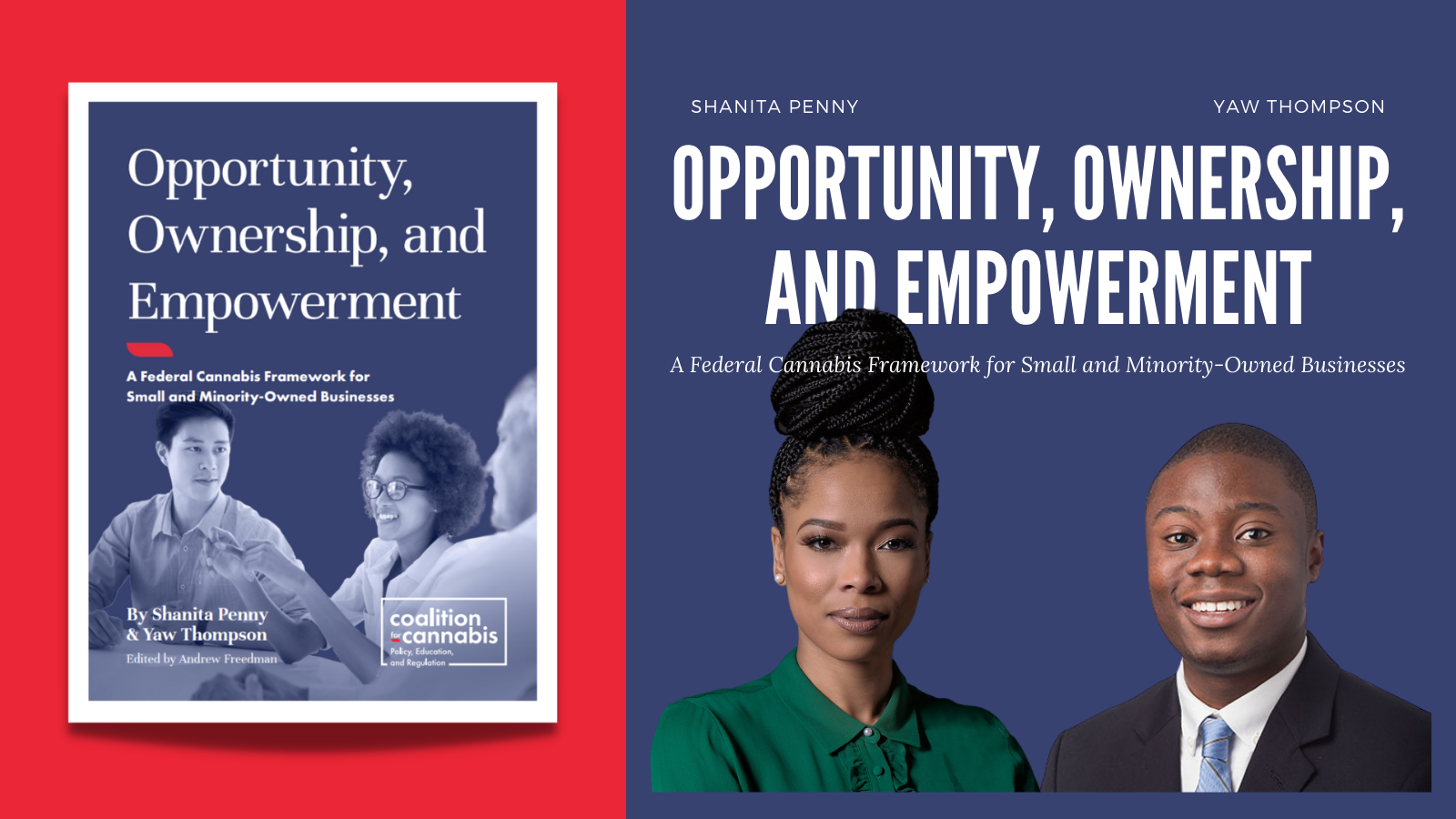
June 17, 2021
CPEAR Releases First Policy Paper on Small, Minority-Owned Business in Cannabis Industry
The paper calls for a thoughtful federal regulatory structure that protects and builds small businesses while nurturing opportunity, ownership, and empowerment for small and minority business owners.
WASHINGTON, D.C. – Today, the Coalition for Cannabis Policy, Education, and Regulation (CPEAR) released its first policy paper entitled “Opportunity, Ownership, and Empowerment: A Federal Cannabis Framework for Small and Minority-Owned Businesses.” The paper examines current regulations and definitions used by federal agencies and government lending practices and uses state equity programs as case studies for the federal government to keep in mind when legalizing cannabis nationwide.
“Today’s policy paper release is an exciting and critical step in CPEAR’s mission to advance a comprehensive federal framework for cannabis,” said Andrew Freedman, executive director of CPEAR. “As the paper clearly outlines, small and minority-owned businesses are the foundation for a nationwide economic ecosystem that allows entrepreneurs to grow a business. We urge lawmakers to take an earnest look at the opportunities for small and minority-owned businesses to thrive as they craft federal cannabis legislation.”
“This paper discusses how the nascent nature of the cannabis industry and the history of victimizing communities of color provide a unique opportunity to help improve the government’s overall approach to encouraging small business growth and enhancing opportunity for minority entrepreneurs,” said Shanita Penny, CPEAR Center of Excellence member.
The policy paper urges Congress to establish a regulatory framework that provides opportunities for small and minority-owned cannabis businesses by prioritizing (i) social equity, (ii) community reinvestment, and (iii) economic empowerment by ensuring:
- An ecosystem centered on small and minority-owned businesses, wherein financial tools and regulatory protection are available to market entrants who fulfill minimum criteria.
- A focus on ensuring communities disproportionately affected by the war on drugs have fair access to the emerging federal legal cannabis market.
- A path to the industry for formerly incarcerated individuals convicted of non-violent cannabis crimes (i.e. expunging the records of people convicted of violating cannabis laws and discontinuing use of previous cannabis convictions as a disqualifier for “good moral character”).
- Small and minority-owned businesses have access to capital.
- Small and minority-owned businesses have all the resources necessary to meet regulatory requirements.
- Federal revenues are allocated for investments in disproportionately affected communities.
Read the policy paper in its entirety here.
In coordination with the paper release, CPEAR hosted a virtual roundtable to discuss this topic with executive directors of various cannabis and small business groups, including the NuLeaf Project, Origins Council, and Main Street Alliance. Click here to watch the virtual roundtable.